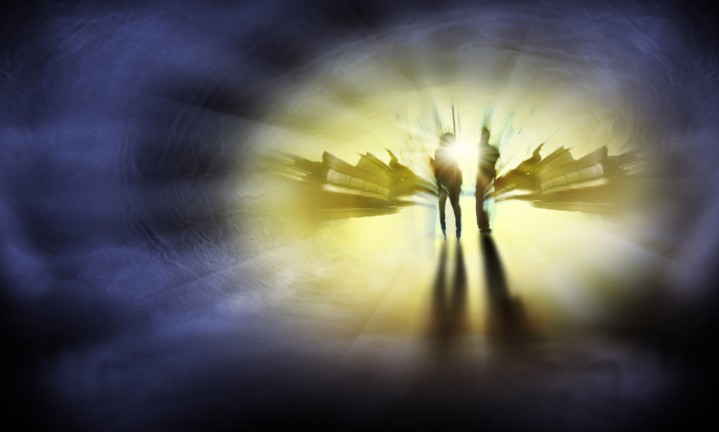Faith
Do Non-Jews Have a Soul in Judaism? A Guide for Converts and Seekers
Common misconceptions about how Judaism views non-Jews, their spiritual role, and the meaning of conversion
- Daniel Blass
- |Updated

Hello Rabbi,
My name is Ruti, and I am currently going through the process of conversion to Judaism. Lately, I’ve been feeling very frustrated and unsettled about a certain issue that I find difficult to accept.
As part of my studies during this process, I discovered that Judaism’s attitude toward non-Jews is not always what I expected. For example, I was told that unlike Jews, non-Jews don’t have a soul. I was also told that the principle of pikuach nefesh (saving a life) does not apply to non-Jews, and that “love your neighbor as yourself” refers only to Jews and not to non-Jews — along with other teachings in the same direction.
Since I am in the middle of the conversion process, you can understand why this issue is so sensitive for me. It is very hard for me to think that my mother — the most important and beloved person in my life, who has sacrificed so much for me and my siblings, would somehow be considered “less” in God’s eyes.
My question is, did not the Creator make all human beings in His image? I deeply believe in the path I have chosen, even if I do not agree with every lifestyle choice of others.
I truly believe that every person has the right to make their own choices, as long as those choices benefit themselves and the people around them, and as long as their aspirations are to be good and to do good.
I would be very grateful if you could take the time to answer me, and help me continue my conversion process with a little more peace of mind, God willing. Thank you so much.
* * *
Shalom and blessings,
Judaism’s ways are “ways of pleasantness, and all its paths are peace”, which means that our love extends to non-Jews who are good and upright.
The Torah does not require or even encourage non-Jews to convert. Non-Jews are good as they are, so long as they observe the Seven Noahide Laws that God commanded them.
You sound like a good person, but it seems that you are missing some basic knowledge of Judaism. Unfortunately, even many Jews today lack important knowledge, and sometimes they unintentionally mislead others.
One of the most fundamental things you must know is that all human beings were created in the image of God, and Judaism teaches that non-Jews also have souls. Non-Jews are obligated to keep the Seven Noahide Laws, and they are judged and rewarded in the World to Come for their good or bad deeds. There are righteous non-Jews and wicked non-Jews. Our sages taught that righteous non-Jews who fulfill the Seven Noahide Laws have a portion in the Garden of Eden and will be resurrected in the time of the redemption. After the final redemption, all nations will serve God together and come to the Temple in Jerusalem to bring offerings.
It seems you were given incorrect information regarding non-Jews. According to Jewish law, one must save the life of a ger toshav (a non-Jew who keeps the Noahide laws) and heal him free of charge. On Shabbat, Jewish law rules that we must save non-Jewish lives because of the principle of darchei shalom — the ways of peace. Ultra-Orthodox emergency services in Israel save the lives of non-Jews on Shabbat as well.

The commandment to “love your neighbor as yourself” is indeed a very demanding mitzvah, but it is not intended to exclude respect and kindness toward non-Jews. On the contrary, gratitude and honoring one’s parents is a universal value. The sages even taught that non-Jews are obligated to honor their parents, and the Talmud praises righteous non-Jews who excelled in honoring their mother and father.
Certainly God loves all His creations with a great love, as the verse in Psalms says: “His mercy is upon all His works.” At the same time, it is clear that God is closer to those who serve Him, think about Him, and fulfill His commandments. A Buddhist, for example, may want to feel inner peace, but he does not focus on God or commit to His commandments. A Jew, however, has been given a unique mission in the world, like a messenger sent by the king for an important task. If the messenger fails to carry out his mission, he is punished more severely because his responsibility is so much greater. The same is true for Jews: their spiritual responsibility and potential are greater than that of non-Jews, because they are commanded to observe 613 mitzvot, not only seven.
This is what gives Jews greater closeness to God, but also greater responsibility, and therefore both greater reward and greater consequences. Sadly, there are Jews today who neglect their Judaism, but they cannot be taken as an example—just as you wouldn’t take as an example a soldier who refuses orders, or a messenger who abandons his mission.
Your choice to convert is a very great and serious choice, because the responsibility of being Jewish is immense. Once you have completed a proper conversion, you cannot return to being a non-Jew.
It is also very important that your conversion is done with Orthodox rabbis in a proper institution. Sadly, there are institutions today that do not conduct proper conversions, and their converts are left in a doubtful situation — neither fully Jewish nor fully non-Jewish according to halacha.

